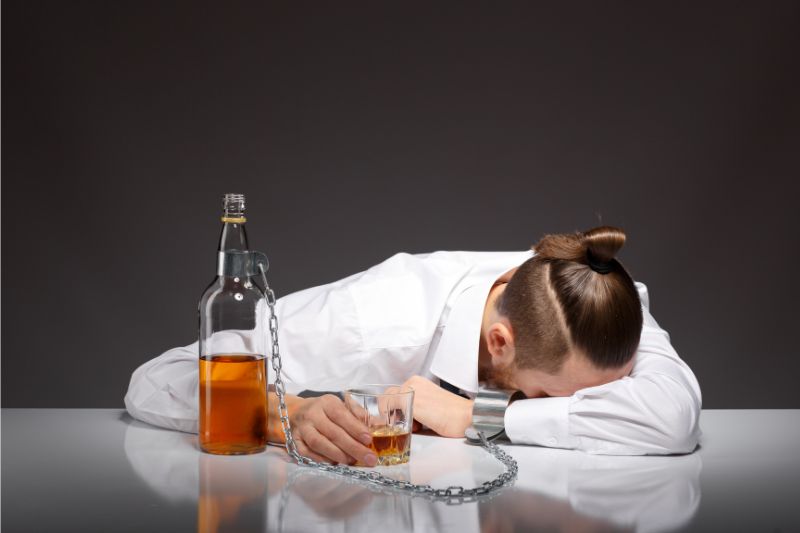Massachusetts Alcohol Addiction Rates

Alcohol is one of the most used social tools in the United States. It’s often seen at any sort of social gathering, from sports events and birthday parties to concerts.
For some, casual drinking may be manageable. But others may struggle to find that balance and develop an alcohol use disorder (AUD), a medically diagnosed mental issue.
Currently, Massachusetts is feeling the weight of these alcohol misuse issues and it’s reflected in the rate of addiction. Below we’ll explore current alcohol addiction rates in the state, and learn how treatment options like inpatient programs and detox in Massachusetts can help you or a loved one recover from an alcohol use disorder.
What Is an Alcohol Use Disorder?
An alcohol use disorder is diagnosed when one displays certain signs and symptoms related to drinking alcohol.
The characteristics of an AUD can look like:
- strong cravings or desire to drink
- inability to control drinking
- inability to enjoy activities that don’t involve drinking
- drinking to relieve yourself of withdrawal symptoms
- justifying the negative consequences of drinking
- drinking at inappropriate times, such as at work or while driving
- experiencing frequent blackouts induced by alcohol
Alcohol use disorders can create many long-term problems that can affect mental, physical, and emotional health. It also takes a huge toll on those around you.
Long-term issues related to alcohol use disorders are:
- heart disease
- stroke
- liver disease and cancer
- mood swings
- insomnia
- depression
- anxiety
- tremors
- sweating
- trouble with work
- run-ins with the law
- relationship problems
- financial strain
Rates of Drinking in Massachusetts
Many Americans indulge in drinking to excess. According to the National Institute on Alcohol Abuse and Alcoholism (NIAAA), 14.5 million people ages 12 and older had an AUD.
In recent years, there has been a rise in high-intensity binge drinking. The same report done by the NIAAA points out that people who engage in this type of binge drinking are 70 times more likely to have an alcohol-related emergency than those who don’t binge drink.
This is where Massachusetts drinking rates follow nationwide drinking trends. America’s Health Rankings found that 20% of adults in Massachusetts reported binge drinking or high-intensity drinking in the past 30 days. This is higher than the national average of 17%.
Binge drinking is described as having an excessive number of drinks in one sitting. For example, having five or more drinks for males and four or more for females in two hours is considered binge drinking.
High-intensity drinking is binge drinking to a greater degree. The rate will typically double for binge drinking amounts, meaning 10 or more drinks for males and eight or more for females in two hours.
There is also a high rate of underage drinking in Massachusetts. In the state, 31% of people aged 12 through 20 reported drinking, and 20.1% of them reported binge drinking. This ranks as some of the highest rates in the country.
Why Is There a Prevalence of Binge Drinking in Massachusetts?
Massachusetts is known as one of the most college-heavy states in the nation. It prides itself on being home to many top universities.
This means there are more college students in the vicinity. College is known as a time for experimentation and is also when many people turn the legal drinking age, 21.
Many college students abuse drugs and engage in drinking as a way to easily fraternize with each other. This leads to an increase in binge and high-intensity drinking.
Binge drinking can lead to many serious complications for students, such as:
- violent and erratic behavior
- unprotected sex
- sexual assault
- drinking and driving
- missing classes
Treating Alcohol Addiction in Massachusetts
There are many treatment options to recover from an alcohol use disorder. These options are flexible to accommodate for different lifestyles, financial states, ages, genders, and severity of alcohol abuse.
Treatment options for alcohol use disorders are:
- Inpatient or residential programs: Patients live on-site and receive around-the-clock care.
- Outpatient programs: Patients attend sessions two to three times a week, then return home.
- Partial hospitalization programs: Patients receive all-day treatment including counseling and medical check-ups and then go back home.
- Alcohol detox: Several days of medically-supervised detox for people who need to withdraw from alcohol in a safe and controlled environment.
Entering any of these options can jumpstart an alcohol-free life. Explore your options or talk with a loved one who can help you to get started.











Leave a Reply